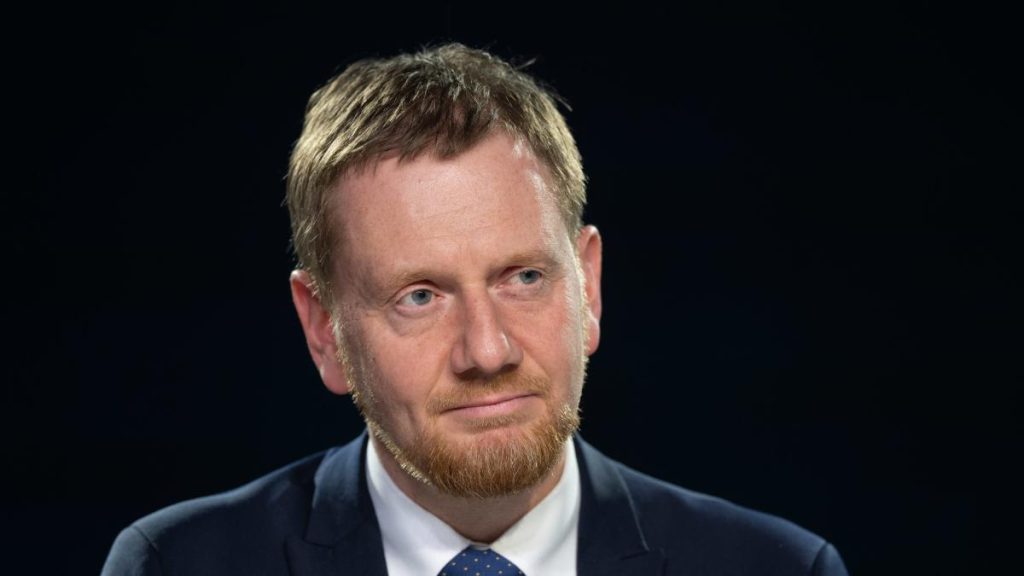Sachsen’s Minister President Michael Kretschmer (CDU) has called for a commitment to democracy. In a video message to the Synod Convention of the Protestant Church Berlin-Brandenburg-Silesian Upper Lusatia in Görlitz on Saturday, Kretschmer questioned whether the election program and actors of the AfD (Alternative for Germany) are contributing to society’s cohesion. He emphasized the importance of moving away from “mindless populism.” Kretschmer highlighted the positive development of over 30 years of democracy in eastern Germany, stating that democracy, pluralism, and social market economy are the better concept and that going back to the past is not an option. He stressed the significance of identity and diversity in Saxony, emphasizing the need for Christians to focus on common ground in conversations about controversial topics.
The upcoming state election in Saxony in September adds urgency to Kretschmer’s message, as the AfD recently polled at 34 percent, making them the strongest party in the state, followed by the CDU at 30 percent. A potential lack of majority in the election could make it challenging for Kretschmer to form a ruling government. Kretschmer has ruled out any cooperation with the AfD, and has also stated his intention to avoid forming a coalition without the Green Party. The political landscape in Saxony is increasingly complex, with the possibility of shifting alliances and challenges in forming a stable government.
Kretschmer’s call for a commitment to democracy and rejection of the AfD’s approach is crucial in the current political climate in Saxony. The rise of populist movements and divisive rhetoric has posed a threat to social cohesion, making it essential for leaders like Kretschmer to advocate for unity and inclusivity. By emphasizing the values of democracy, pluralism, and social market economy, Kretschmer is sending a clear message about the kind of society he envisions for Saxony, one that values diversity and dialogue over polarization and exclusion.
With the state election looming, Kretschmer’s stance on political cooperation and commitment to democratic principles will be put to the test. The uncertain outcome of the election and the possibility of a fragmented political landscape post-election will require strategic decision-making and coalition-building skills from leaders like Kretschmer. By ruling out alliances with the AfD and expressing a preference for a coalition with the Green Party, Kretschmer is positioning himself as a centrist leader who prioritizes stability and consensus in governance.
As Saxony prepares for the upcoming election, Kretschmer’s message serves as a reminder of the importance of upholding democratic values and fostering social cohesion. By calling for a rejection of populism and a focus on common ground, Kretschmer is positioning himself as a leader who is committed to building a united and inclusive society in Saxony. The outcome of the election will test the strength of these principles and determine the future direction of the state’s political landscape.















